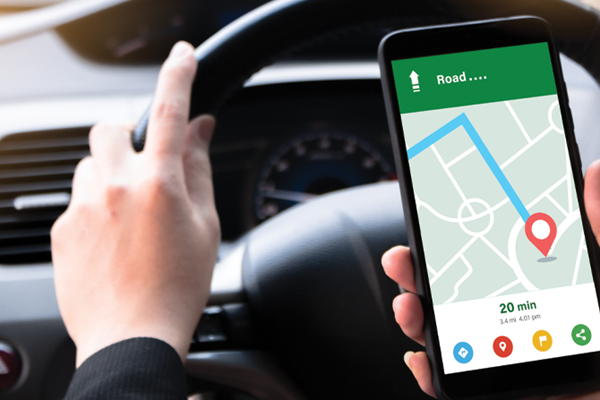Silent Testimony: Leveraging iOS KnowledgeC Data to Uncover Device Usage

The KnowledgeC database is part of Apple's "CoreDuet" system, designed to help iPhones learn user behaviors to enhance device usability. It captures detailed logs reflecting user activities, such as app launches, screen locks and unlocks, device movements, and even interactions with connected Bluetooth devices. Each recorded event includes timestamps, offering a highly detailed and chronological record of device interactions.
In recent high-profile cases, such as the widely publicized Karen Read murder trial in Massachusetts, determining precisely when a suspect or victim last used their cell phone has become critical. Accurately pinpointing device usage times can either establish an alibi or undermine a defense, dramatically shaping trial outcomes.
Traditionally, establishing timelines primarily relies on eyewitness testimonies or surveillance footage, methods that are subject to human error or manipulation.
Consequently, attorneys frequently face ambiguity when presenting their cases, with juries often left uncertain about crucial timing details.
To address this issue, digital forensic experts increasingly rely on data extracted from the iOS KnowledgeC database, an obscure yet invaluable feature within Apple’s operating system.
Specialized Data Extraction to Capture KnowledgeC
Digital forensic experts utilize specialized tools, such as Cellebrite Physical Analyzer or Magnet AXIOM, to parse KnowledgeC database files. Extracting data from the KnowledgeC database requires advanced knowledge of iOS architecture and best forensic practices, given that data preservation and integrity are crucial for court admissibility.
Experts cross-reference extracted timestamps with other device artifacts, including GPS data, messaging logs, or call detail records, to build a robust and coherent timeline of user activity.
For example, in the Karen Read trial, the defense relied heavily upon KnowledgeC data extracted from the victim’s iPhone to establish precisely when the phone was last interacted with, ultimately shaping their narrative of events leading up to the victim's death.
KnowledgeC’s evidence provided clarity, significantly impacting the timeline arguments presented by both prosecution and defense, demonstrating its immense value in courtroom scenarios.
The Crucial Evidence From KnowledgeC
The importance of using KnowledgeC data in digital forensics cannot be overstated.
Firstly, it provides objective, device-generated evidence that bypasses human fallibility. Unlike traditional methods that rely on witness memories, which can be potentially clouded by stress or bias, KnowledgeC data is systematically logged and immutable under proper forensic conditions.
Secondly, because it records subtle interactions, such as app usage and screen interactions, forensic experts are provided with the granular details necessary to establish accurate timelines.
This precision is particularly crucial in criminal investigations, where timelines significantly impact a jury's understanding of events and their assessment of culpability.
Use of KnowledgeC in Trial
Moreover, attorneys equipped with an understanding of KnowledgeC capabilities can strategically leverage this data during trials. Defense attorneys might utilize KnowledgeC logs to demonstrate device inactivity, supporting an alibi that a suspect was engaged elsewhere at the time of a crime.
However, the reliability of KnowledgeC data hinges significantly on proper forensic practices. Chain-of-custody protocols must be strictly adhered to, ensuring data integrity from initial seizure through forensic analysis and eventual courtroom presentation.
Attorneys must also critically evaluate opposing experts' methodology, ensuring that KnowledgeC analysis and interpretation adhere to forensic best practices. An effective legal strategy requires attorneys to not only grasp the technical aspects of KnowledgeC data but also understand how to scrutinize forensic methodologies and effectively challenge opposing expert testimony.
Strengthening Legal Arguments Through Digital Forensics
The ambiguity surrounding the last known use of a cell phone can severely undermine legal arguments, leaving cases vulnerable to subjective interpretations. Leveraging KnowledgeC data extracted from iOS devices provides a powerful solution by delivering precise, objective timelines based on direct user-device interactions.
The Karen Read trial vividly demonstrates the pivotal role this forensic approach can play, offering attorneys both prosecutorial and defense strategies bolstered by indisputable technological evidence.
For attorneys and digital forensic experts alike, mastering the nuances of KnowledgeC data not only enhances investigative rigor but significantly strengthens the evidentiary foundation presented to juries, profoundly influencing trial outcomes.
Connect With Digital Forensics Experts | Envista Forensics
Whether you're building a compelling defense or challenging opposing claims, ensure your case stands on a foundation of objective, timestamped data.
Contact Envista Forensics to connect with experienced digital forensic experts ready to support your case.
Nuestros consultores están listos para ayudar.



